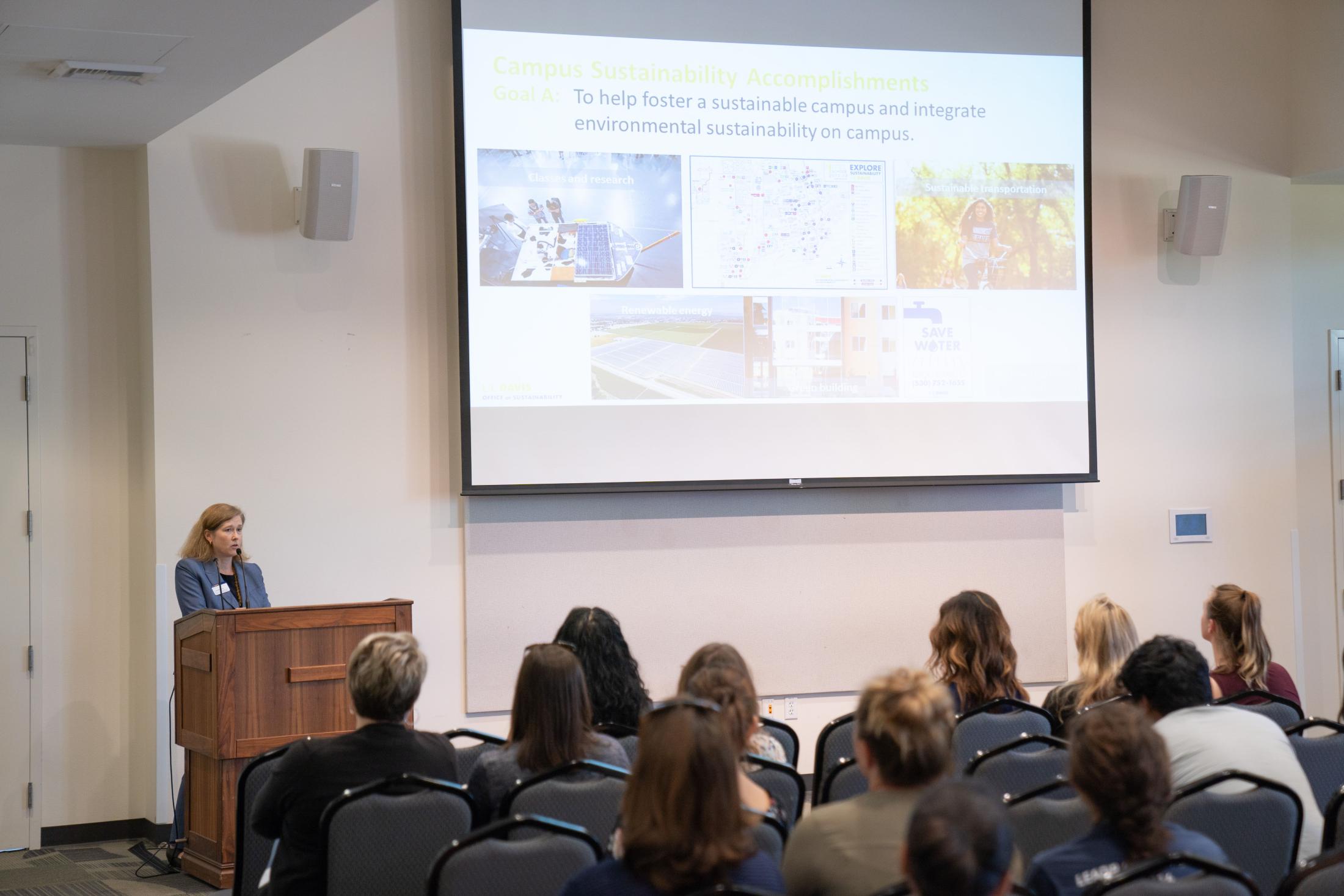Zero-net energy housing. The next phase of West Village broke ground and is under construction now – we’ve used lessons learned from the first building phase to help this phase achieve zero-net energy, in addition this project adds to the housing in Davis, helping students and our local community.
Green house gas inventory. While our campus is still in the process of completing our 2018 Green House Gas (GHG) inventory, another meaningful reduction is predicted.
Reducing future carbon offsets. Our campus's Climate Action Plan model update found a portfolio of direct action solutions that don’t rely indefinitely on carbon offsets, while also achieving more resilience and renewing our infrastructure for our next several decades. One of the modeled actions, which recently gained leadership support, includes a large-scale project to convert our old, inefficient steam district heating system to a heating hot water system, which will save water, reduce our use of natural gas, and improve our greenhouse gas footprint.
Climate change research findings. Many UC Davis faculty, led by Ben Houlton, director of the John Muir Institute of the Environment, produced the Sacramento Valley Regional Climate Assessment as part of California’s Fourth Climate Change Assessment. We learned from this work that our region will have a climate more like that of Phoenix, Arizona by the end of the century, which gives us all even more motivation to take on climate change mitigation and adaptation actions.
Nitrogen footprint reporting. The Office of Sustainability officially adopted responsibility for producing the annual nitrogen footprint with the support of the student group, SEEDS, who’ve been producing the nitrogen footprint; this will help make data collection and analysis more efficient and enable SEEDS to focus on projects related to the results of our nitrogen footprint
Electric bikes and cars. Thanks to a partnership with others in our region, Jump Bikes (electric assist bikes) are now available on campus. UC Davis is also partnering with BMW to test out their electric vehicles in our rental fleet.
Sustainable transportation planning. The campus's sustainable transportation roadmap, which aims to help our campus community reduce its single-occupancy vehicle use, will be finalized in the next couple of weeks. Elements of this plan are already being initiated at our UC Davis Health campus in Sacramento. In addition, We are working with our local and regional communities on a project to electrify buses running between Davis and Sacramento
Sustainable food. The MU CoffeeHouse bought 21 percent sustainable food, Dining Services bought 35 percent sustainable food and the UC Davis Health campus in Sacramento increasing their sustainable food procurement to 21 percent while managing to win a James Beard award for serving healthy and tasty meals to the hospital.
Sustainable purchasing. Supply Chain Management doubled down on its sustainable purchasing efforts by including sustainability metrics and input fro the Office of Sustainability in purchasing contracts, helped spread awareness about sustainable purchasing options and worked with lab materials suppliers to offer green options.
Recycling.
- The Office of Sustainability received a CalRecycle grant in March 2019 for nearly half a million dollars ($476,000) to improve our zero-waste infrastructure with a new campus recycling truck, outdoor recycling bins and recycling toters. The grant will be implemented over the course of the next few years. The Office of Sustainability also won a $4,000 grant for a student intern to work on our green labs plan and program.
- The UC Davis Preferred Partnership Program worked with Pepsi Beverages Company and the Office of Sustainability to help develop a co-branded recycling awareness project.
- New waste signage for our landfill, recycle, and compost streams was created to provide easier-to-understand information. The signs were first deployed at Picnic Day and the Thank Goodness for Staff event, and will soon start to appear across campus.
















